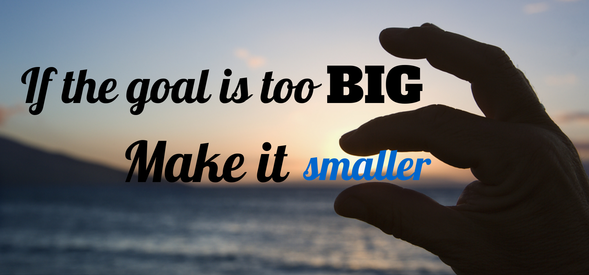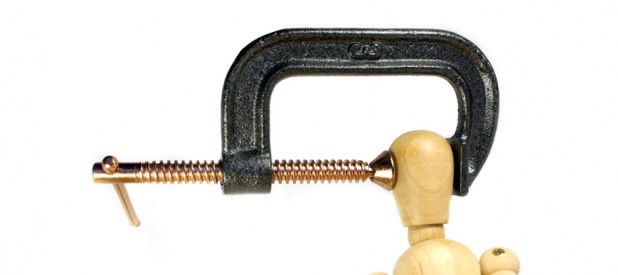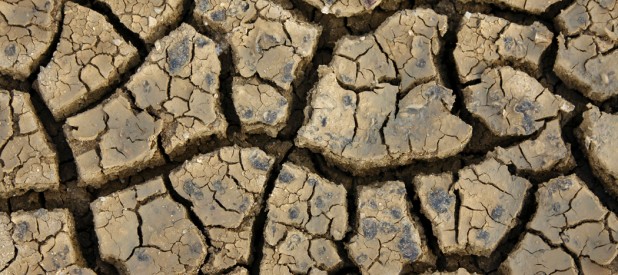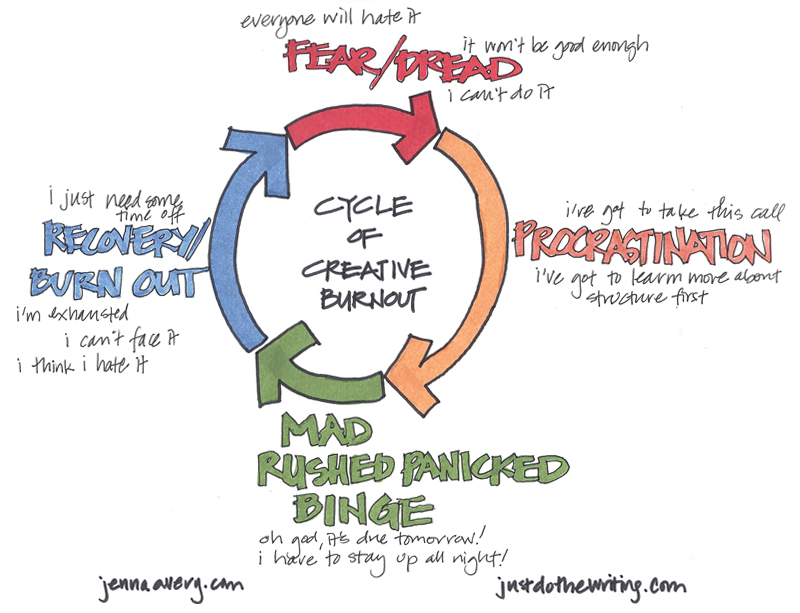Morning pages are something I mention fairly often here at Called to Write, but haven’t ever defined. Many writers are unfamiliar with the concept.
Morning pages are a writing tool created by Julia Cameron and described in her book The Artist’s Way: A Spiritual Path to Higher Creativity*.
The core idea is to write three long-hand, stream of consciousness pages every day, first thing in the morning upon awakening, no matter what, even if you only write, “I don’t know what to write,” over and over again.
If you have a comment or question about writing morning pages, make sure you leave a comment by Friday, March 10th at 11:59 p.m. Pacific Time because one lucky commenter will receive a copy of the 25th Anniversary edition of The Artist’s Way, as my gift. (And if you already have the book, I’ll send it to someone you want to share it with!)
How to Write Morning Pages in 3 Easy Steps
Here are three easy steps to help you get started writing morning pages:
Step 1: Get yourself a notebook to write in (and put it somewhere you’ll find it quickly and easily in the morning).
I like something with half-size sheets so that it doesn’t take me all day to fill the pages. My favorite is this steno notebook*, because I love the paper weight and the size of the pages. I prefer using something a little more disposable like this than a fancy journal since I don’t want to feel attached to them. Though I’ve kept all of my many notebooks so far, I expect to eventually have a bonfire with them and I don’t want gorgeous leather-bound books energetically stopping me from letting go. I keep my notebook with my favorite pen tucked into my nightstand for easy retrieval upon awakening.
Step 2: Write three pages — about ANYTHING — when you wake up.
I love to write morning pages before I do anything else other than make a quick trip to the bathroom and put in my contact lenses. Then I hop back in bed and write. My pages tend to take me about 20 minutes. Some writers prefer to get up and make coffee or tea, and sit in a cozy spot to write their pages. If you’re tempted to stop short of three pages, I highly recommend pushing through. There’s so much insight that happens once you get deeper in (usually about the 2.5 page mark) — don’t miss it. Don’t worry about what you’re writing — just write whatever is swirling around in your brain, even if it’s boring, whiny, ridiculous, or pointless. It doesn’t matter.
Step 3: Repeat the next day… and don’t look back.
Write the next day, and the day after that, and the day after that. Morning pages are one of those tools for life that are worth holding onto. Especially in the early days of writing morning pages, don’t re-read your pages. Julia Cameron even recommends stapling the pages together when you first start so you aren’t tempted to go back. Just put the words on the page, and move on. It’s a tool, not a record.
5 Reasons You’ll Want to Write Morning Pages
Some pretty amazing and miraculous things start happening once you’ve been writing morning pages for a while. Here are five reasons you’ll want to make them part of your regular writing routine:
1. Morning Pages Lead to Creative Recovery
Morning pages are a powerful tool for creative recovery. Many writers and artists experience creative burnout at some point and struggle to regain their creative footing and orientation. Writing morning pages helps us find our way back to our creative selves.
Morning pages also are a way to “rest” on the page — a way to keep the words flowing even if you’re feeling blocked with writing your book or what to write next, and can be a “bridge” to keep you writing between finishing a draft and tackling your next revision when you don’t want to lose your writing habit and momentum.
Writing pages this way also helps free us from perfectionism. Since we’re writing without editing or for publication or even for sentence structure, it gives us great practice at letting the words flow freely without judgement or internal censorship.
2. Morning Pages Prepare Your Mind for Creative Insight and Discovery
Writing morning pages will help you clear away any angst, fear, worry, and doubt — in any area of your life. Morning pages are not journal pages — you aren’t (necessarily) going to be recording your life experiences through your morning pages. Instead, use them to purge the voices of negativity that hold you back. Get them out onto the page and out of your head, so you can move to your writing with a lighter heart and fresher spirit. So go ahead and vent and complain. Get it all out and leave it behind you.
What’s so cool about this is that it helps you quiet your mind. And a quieter mind is one better prepared for creative insight and discovery.
3. Morning Pages Foster Self-Trust and Honesty
Morning pages require honesty. Writing every day about what bothers you and what’s going on has a way of surfacing truths for your attention and recognition. You just can’t get away with complaining about the same thing over and over again without feeling called to make a change. You’ll notice what’s working and what’s not working in your life. And as you listen to yourself, you’ll build trust with yourself and your inner wisdom because you’ll be noticing over and over again where your inner voice is giving you information about what’s going on — and you’ll see the evidence of it.
4. Morning Pages Are an Antidote to Self-Forgetting
Morning pages are a powerful antidote to self-forgetting. When you write morning pages, you’ll reconnect with yourself. In my experience, it can be challenging to “come back to yourself,” especially in a world where busyness and materialism abound (and especially as a sensitive, intuitive, introverted writer). All the noise around us can make us feel lost and disconnected from ourselves, and morning pages bring us back to who we are.
A writer who knows herself is better able to deliver her highest quality work.
5. Morning Pages Are a Pathway to Self-Acceptance
Once you’ve stepped into this place of consciousness, it’s hard to go back. Fundamentally, morning pages give you permission to be who you are. They are a pathway to a radical form of self-acceptance. By being true to yourself and fully expressing all of yourself without judgment, you honor the truth of who you are.
Personally, I have found morning pages invaluable, from plain-old venting to accessing powerful insights. I use my pages to whine, moan, and complain. I unload my greatest fears and my deepest desires. And I ask for guidance from my inner self. It’s an incredible way to clear your mind and listen to your heart.
Answers to Common Questions About Morning Pages
- Do I have to write morning pages in the morning? Yes. :) Though you get to make your own rules for yourself, and of course no one can tell you there’s anything you HAVE to do with your writing. At the same time, this is such an incredible writing tool it’s worth experimenting with as prescribed.
- Do I have to write morning pages long-hand? Julia Cameron (and I) both recommend writing morning pages long-hand. There’s something incredibly transformative about writing your pages out by hand. And… there’s a pretty nifty site called 750words.com as an option for writing pages online. You could certainly use ByWord or Scrivener as well (two of my favorite writing tools).
- What’s the different between morning pages and journaling? The main difference between morning pages and journaling is that morning pages are about ANYTHING. It’s about clearing out, writing stream of consciousness style, about whatever is circling your brain. Journaling can be the same, of course, but it tends to more “about” something, such as recording your day, or exploring a particular issue. And while that happens sometimes in morning pages, it’s just as often as not complaining about errands we have to run or other things we’re processing.
- If your writing time is limited, is it better to just focus on your book than on doing morning pages? Maybe yes, maybe no. I’ve made the choice for the last couple of years since baby #2 to focus on my primary writing projects rather than doing pages because time (and sleep!) has been at such a premium. And… I’ve dearly missed them. I’ve gone to doing a morning journal check-in lately instead, but I’m going back to morning pages too.
- Can I share my pages with other people? I don’t recommend sharing your morning pages with anyone else, ever. Part of the magic and what’s makes them so powerful is that they are completely private and sacred. We can’t fully reveal ourselves on the page when we’re holding back for fear of what someone else might think. So keep them just for you, and protect yourself that way. This is great practice for learning to more fully reveal yourself when writing stories and books as well.
- Can I write evening pages instead? If you want to, though really, they ARE quite different animals. You might find that you want to do both. My colleague Jill Winski just wrote a post about writing evening pages in addition to her morning pages. Similarly, The Ultimate Writer’s Toolkit includes a set of morning and evening journal prompts, but focused on writing only. The progress journals that the writers keep in my Called to Write community can also somewhat fulfill the end of day writing “check-in” role that evening pages can play, but again, only around that day’s writing. My take: write morning pages to write morning pages, and use your other tools to fulfill their unique purpose rather than making substitutions.
Do you write morning pages? Do you have other questions about writing morning pages? I’ll happily answer any questions you have.
* Affiliate link
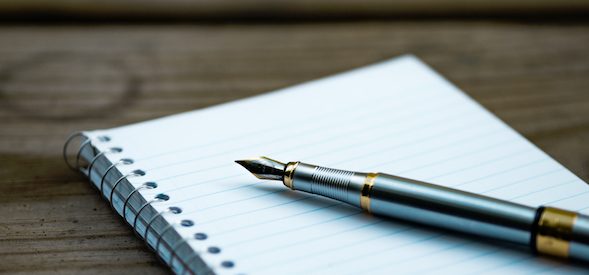

 When you get burned out, it’s hard to do anything, let alone be creative. In this article, I outline seven steps you can take to go from creative burnout to creative recovery, so you can bring back the joy you feel when you create. This is an important skill to master because sometimes — even when we’re doing our very best to keep the creative well filled and do our writing at a sustainable pace — resistance, deadlines, life, and fate conspire to the point where we’re scrambling to finish a project under a big time crunch, binge-write, and exhaust ourselves as a result (sometimes doing so for days, weeks, even months on end). And once we’ve hit that bottom of the creative barrel, writing anything sounds entirely miserable.
When you get burned out, it’s hard to do anything, let alone be creative. In this article, I outline seven steps you can take to go from creative burnout to creative recovery, so you can bring back the joy you feel when you create. This is an important skill to master because sometimes — even when we’re doing our very best to keep the creative well filled and do our writing at a sustainable pace — resistance, deadlines, life, and fate conspire to the point where we’re scrambling to finish a project under a big time crunch, binge-write, and exhaust ourselves as a result (sometimes doing so for days, weeks, even months on end). And once we’ve hit that bottom of the creative barrel, writing anything sounds entirely miserable. 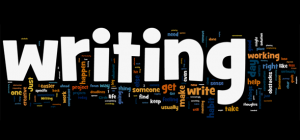 Sometimes as writers we get into a good writing practice but still manage to become complacent about actually FINISHING projects and moving on to the next one, rather just making small amounts of progress or endlessly rewriting and editing. When that happens, it’s time to recommit, and raise the bar of our own expectations. In this article, I discuss seven ways to stop phoning it in and require more of yourself as a writer.
Sometimes as writers we get into a good writing practice but still manage to become complacent about actually FINISHING projects and moving on to the next one, rather just making small amounts of progress or endlessly rewriting and editing. When that happens, it’s time to recommit, and raise the bar of our own expectations. In this article, I discuss seven ways to stop phoning it in and require more of yourself as a writer.  In this terrific guest post, Writer’s Circle coach and produced screenwriter Sarah Newman talks about how to stay in action and keep moving forward with our writing even when fear and uncertainty rear their ugly heads. She shares a list of seven great ways to get unstuck and keep writing that I’m sure you will find both handy and inspiring.
In this terrific guest post, Writer’s Circle coach and produced screenwriter Sarah Newman talks about how to stay in action and keep moving forward with our writing even when fear and uncertainty rear their ugly heads. She shares a list of seven great ways to get unstuck and keep writing that I’m sure you will find both handy and inspiring.  Our most recent “7’s” post was my seven-part series, called “Make 2015 Your Year to Write”. If you missed it, it’s not too late to work with the writing prompts in the series that will help you design and create goals and resolutions for your writing year (2015 or otherwise!) so that they are well-aligned with what you want in the big picture. That way you can make sure you’re working grounded in the reality of where you are right now as a writer and where you want to end up.
Our most recent “7’s” post was my seven-part series, called “Make 2015 Your Year to Write”. If you missed it, it’s not too late to work with the writing prompts in the series that will help you design and create goals and resolutions for your writing year (2015 or otherwise!) so that they are well-aligned with what you want in the big picture. That way you can make sure you’re working grounded in the reality of where you are right now as a writer and where you want to end up. 
 This article was your favorite “7” post, and it’s one of mine too. And it’s no surprise. Procrastination is one of the biggest things we struggle with as writers. In the piece I talk about the most common reasons for procrastination and seven ways to beat it, including some things you may not have thought of, like setting super small micro goals, telling others about what you’re doing to create accountability for yourself, and knowing when to STOP writing.
This article was your favorite “7” post, and it’s one of mine too. And it’s no surprise. Procrastination is one of the biggest things we struggle with as writers. In the piece I talk about the most common reasons for procrastination and seven ways to beat it, including some things you may not have thought of, like setting super small micro goals, telling others about what you’re doing to create accountability for yourself, and knowing when to STOP writing. 
